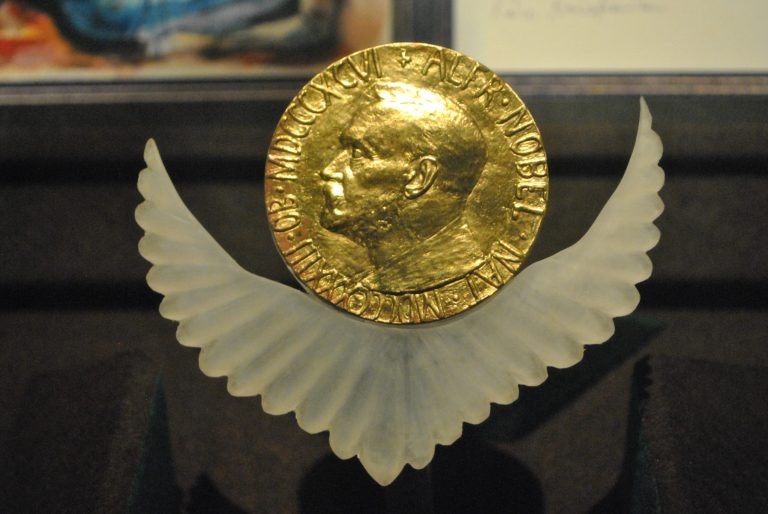
Topics covered
Since 1901, the world has been awarded the Nobel Peace Prize. The aim of the Prize is to highlight those who have shown courage by supporting ideas of peace and democracy throughout the world. Among the prizes instituted by Alfred Nobel – together with those of Physics, Chemistry, Medicine and Literature – the one for Peace is among the most prestigious and perhaps also the most “problematic”.
In fact, it is up to a committee appointed by the Norwegian Parliament to decide who to award the Prize to and it is not always a simple and unambiguous choice, unlike the other more technical disciplines.
Moreover, since peace is a controversial issue and not always “present“, in some years the Prize has not even been awarded – for example during the two World Wars, the Cold War and the Vietnam War.
Nobel Peace Prize to Leaders and Organizations
The prize was not always awarded to individuals, but also to groups or organizations, such as the United Nations, Amnesty International, Doctors Without Borders or the Red Cross (awarded several times). It has often been handed over to heads of state such as Theodore Roosevelt, Barack Obama, Kim Dae-Jung (president of South Korea), Michail Gorbacëv, former president of the Soviet Union, and even Yasser Arafat, Shimon Peres and Yitzhak Rabin who were awarded in 1994 “for their efforts to create peace in the Middle East.
Controversial Nobel Laureates
Among the most contested awards are those to the Heads of State. For example, Arafat and Peres, who decidedly disillusioned their intentions the year after the Nobel Prize, but also the Obama Prize in 2009 for its “diplomatic skills” has upset many. Not to mention the case of the 1945 Nobel Prize attributed to Cordell Hull, Secretary of State of Franklin D. Roosevelt. Hull received the Peace Prize for his commitment to the creation of the United Nations, but the Norwegian jury in giving him this credit perhaps forgot that in 1939 Hull forced the president to prohibit the entry into U.S. waters of a ship full of Jews fleeing persecution. The ship was forced to go back and more than a quarter of its passengers died in the Holocaust.
Famous Nobel Laureates
Famous and undisputed awards have been given to Martin Luther King in 1964 for his battles for civil rights, to Mother Teresa of Calcutta in 1979 for his life dedicated to the poor, to Nelson Mandela in 1993 for his peaceful fight against the apartheid regime in South Africa.
Women and Men
To date, there are far more men who have received awards than women. However, in addition to Mother Teresa of Calcutta, women include Aung San Suu Kyi, the Burmese democratic leader who was finally released after 15 years of house arrest but who had already been awarded the Nobel Prize in 1991 for her opposition to the military regime. In addition to her, there are Shirin Ebadi, the Iranian lawyer committed to defending human rights and still in exile in Canada, and Wangari Maathai, who died a few months ago and was one of the first African women to found a movement for environmental sustainability. Not to mention the 2011 Nobel Peace Prize awarded to three women: two Liberian women (President Ellen Johnson Sirleaf and lawyer Leymah Gbowee) and the Yemeni journalist Twakkol Karman.








